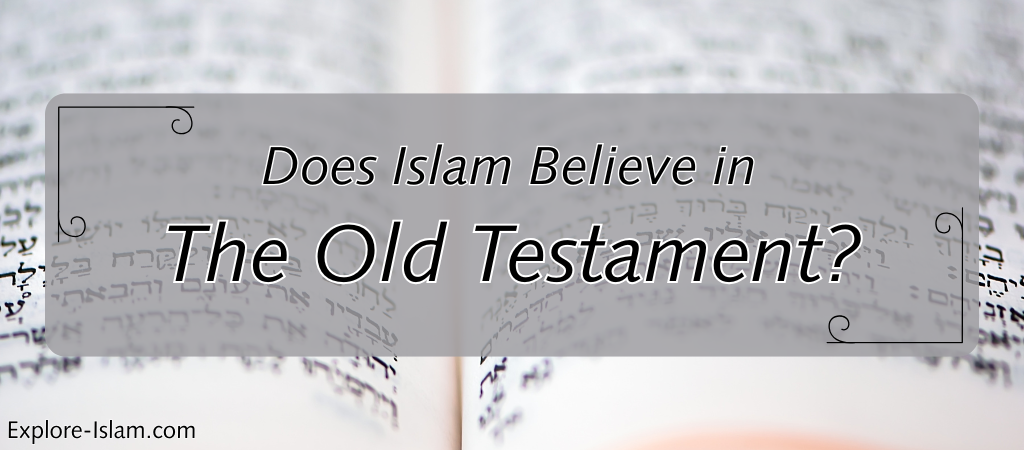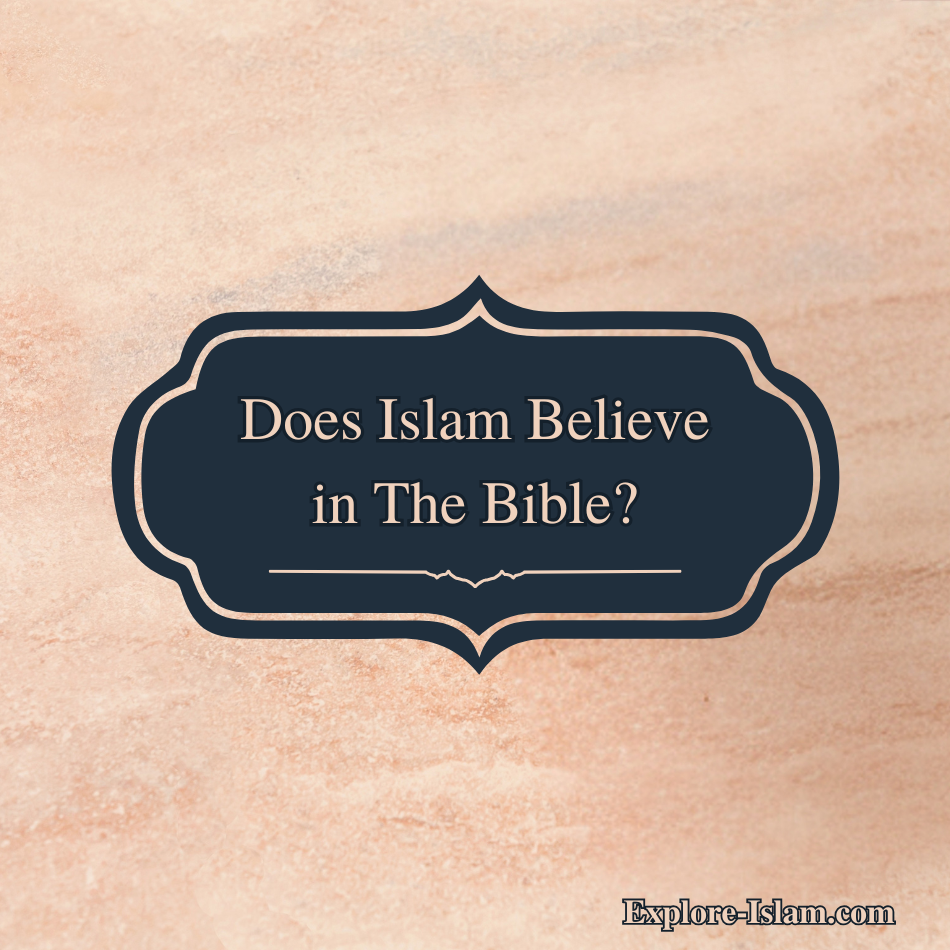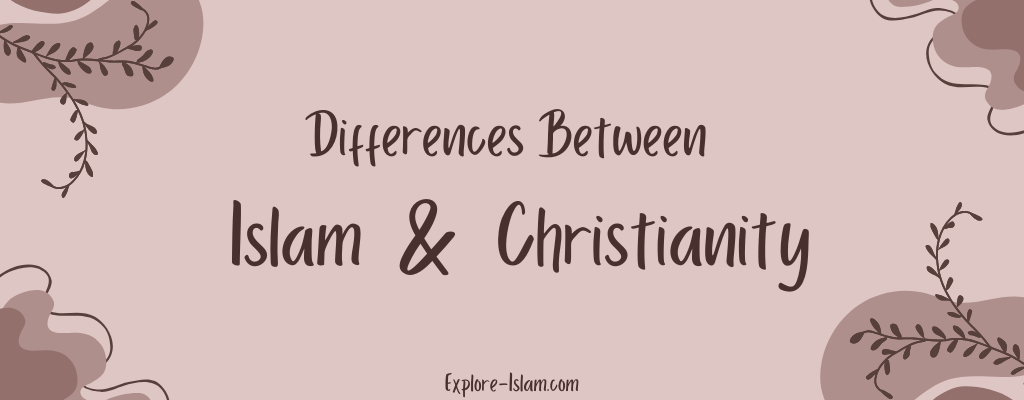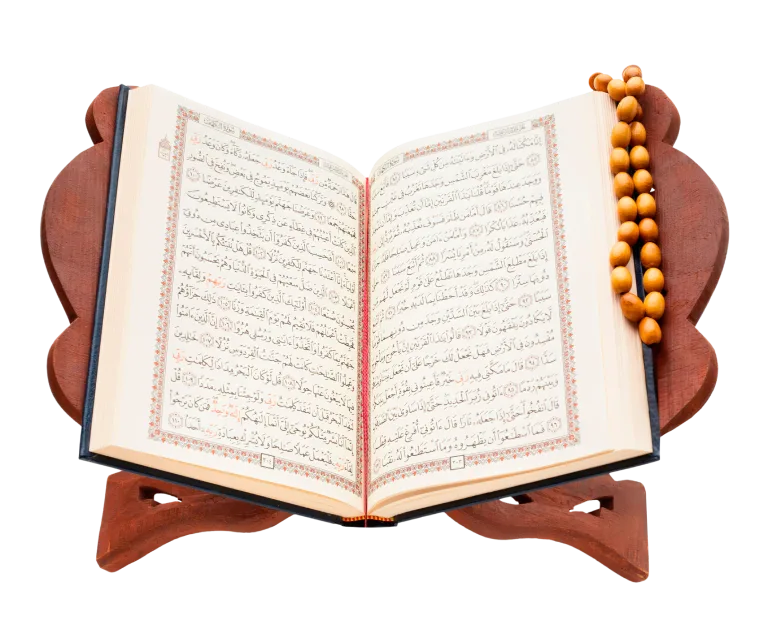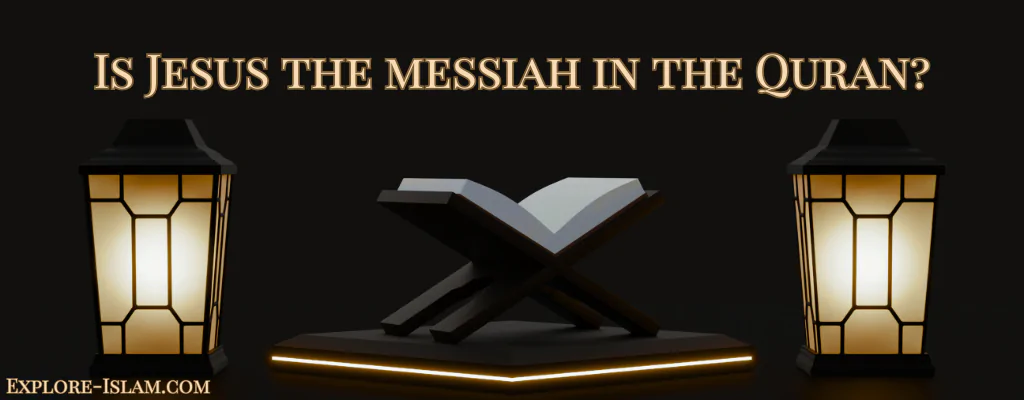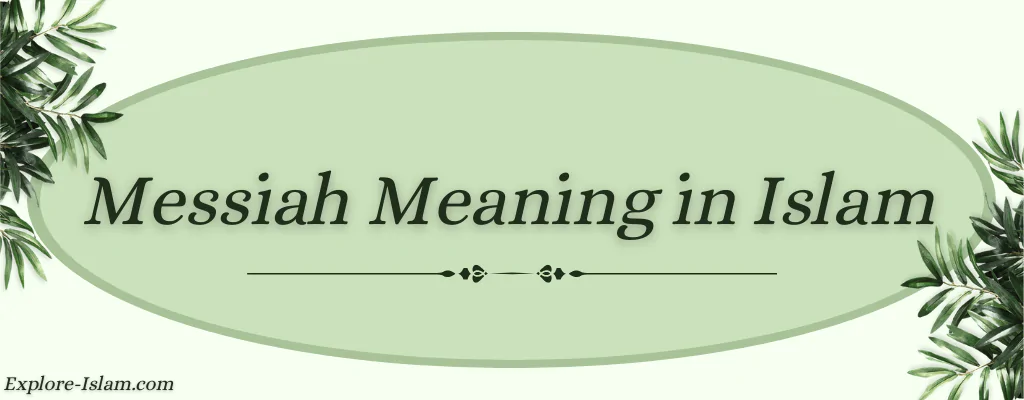Few figures in religious history hold as much significance as Abraham (Ibrahim, peace be upon him). Prophet Abraham is revered in Islam and Christianity alike. Yes, Islam and Christianity trace their spiritual lineage to Prophet Abraham, yet their understandings of his life, mission, and theological significance differ in some ways.
So, what do Islam and Christianity say about Abraham? How do their narratives align, and where do they diverge?
We’re going to go over the main points of the Christian view of Abraham, then the main points of the Islamic view of Abraham, and then compare the differences in a table.
Christianity’s View of Abraham
Christianity undoubtedly holds Prophet Abraham in high regard. Both the Old and New Testaments of the Bible are filled with references that celebrate his faith and the divine promises made to him.
You see, the Old Testament frequently recounts God’s covenant with Abraham, promising to make him the father of many nations, to bless him abundantly, and to make his name great.
1. Biblical Evidence of God’s Promises and Blessings to Abraham
For instance, the Book of Genesis captures God’s command to Abraham:
“Go from your country, your people and your father’s household to the land I will show you. I will make you into a great nation, and I will bless you; I will make your name great, and you will be a blessing. I will bless those who bless you, and curse those who curse you; and all peoples on earth will be blessed through you.”
Further emphasizing this, Genesis also states,
“As for me, this is my covenant with you: You will be the father of many nations. No longer will you be called Abram; your name will be Abraham, for I have made you a father of many nations. I will make you very fruitful; I will make nations of you, and kings will come from you.”
2. Abraham is the Father of Faith in Christianity
The New Testament emphasizes Abraham’s faith as the basis for his righteousness.
In the book of Romans, Paul states that:
“Abraham believed God, and it was credited to him as righteousness.”
3. Abraham is an Ancestor of Jesus in Christianity
Abraham is recognized as a crucial figure in the genealogy of Jesus.
The Gospel of Matthew traces the lineage of Jesus back to Abraham, establishing a direct connection between the patriarch and the Messiah.
This lineage reinforces the significance of Abraham in Christian tradition and his role in God’s plan of salvation.
4. Points of Contention in the Biblical Account of Abraham
These verses clearly illustrate the elevated position of Prophet Abraham in Christian theology.
However, alongside these affirmations, Christian scripture also presents narratives that seem inconsistent with such reverence and the very concept of prophethood. The same Bible that exalts Abraham also attributes actions to him that contradict this reverence.
For example, the Bible recounts instances where Abraham is described as prostrating to people. We read,
“Then Abraham rose from beside his dead wife and spoke to the Hittites. He said, “I am a foreigner and stranger among you. Sell me some property for a burial site here so I can bury my dead.” The Hittites replied to Abraham, “Sir, listen to us. You are a mighty prince among us. Bury your dead in the choicest of our tombs…” Abraham rose and bowed down before the people of the land, the Hittites.”
And again,
“Then Abraham bowed down before the people of the land…”
5. Theological Differences Surrounding the Covenant with Isaac
Another point of divergence is the Christian assertion of a covenant uniquely established with Isaac and his descendants, seemingly setting them apart from Ishmael and his progeny.
In several places in Bilble, God established His covenant exclusively with Isaac and his descendants, seemingly distinguishing them from Ishmael (Isma’il in Arabic) and his lineage:
“And Abraham said to God, ‘If only Ishmael might live under your blessing!’ Then God said, ‘Yes, but your wife Sarah will bear you a son, and you will call him Isaac. I will establish my covenant with him as an everlasting covenant for his descendants after him. And as for Ishmael, I have heard you: I will surely bless him; I will make him fruitful and will greatly increase his numbers. He will be the father of twelve rulers, and I will make him into a great nation. But my covenant I will establish with Isaac, whom Sarah will bear to you by this time next year.'”
Islam’s View of Abraham
Islam highly respects Prophet Abraham. Prophet Abraham is praised a lot in the Quran for his good character and strong belief in Allah.
In Islam, Abraham is known as “Khalil Ar-Rahman,” the intimate friend of the Most Merciful (Allah).
The Quran declares,
“And Allah took Abraham as an intimate friend.”
1. Quranic Verses in Praise of Abraham
Abraham in Quran is described as divinely chosen, righteous, and a paragon of virtue. The Quran states,
“And who would be averse to the religion of Abraham except one who makes a fool of himself. And We had chosen him in the world, and indeed, in the Hereafter he will be among the righteous.”
Abraham is further depicted as “Awwah” (frequently supplicating to God), “Halim” (forbearing and gentle), and “Munib” (turning to God in repentance). Verses like,
“Indeed, Abraham was Awwah and Halim.”
and
“Indeed, Abraham was Halim, Awwah, Munib.”
resonate with these qualities.
Abraham in the Quran is also counted among the “believers” and “doers of good”:
“Peace upon Abraham. Thus do We reward the doers of good. Indeed, he was of Our believing servants.”
Moreover, the Quran honors him as a “Siddiq Nabi” (a man of truth and a prophet):
“And mention in the Book [the story of] Abraham. Indeed, he was a man of truth and a prophet.” ‘(Maryam 19:41).
Islam elevates Abraham status even further by stating he was an “Ummah” (a nation in himself), “Qanit” (devoutly obedient to Allah), “Hanif” (upright and inclined towards pure monotheism), and “Shakir” (grateful for God’s blessings):
“Indeed, Abraham was a Ummah, Qanit to Allah, Hanif, and he was not of those who associate others with Allah. Grateful for His favors. Allah chose him and guided him to a straight path. And We gave him goodness in this world, and indeed, in the Hereafter he will be among the righteous. Then We revealed to you, [O Muhammad], to follow the religion of Abraham, Hanif. And he was not of those who associate others with Allah.”
2. Honoring Abraham’s Station in Islamic Ritual
Such is the reverence for Prophet Abraham in Islam that Muslims are commanded to take his station (Maqam Ibrahim) as a place of prayer, particularly near the Kaaba in Mecca.
The Quran instructs,
“And [mention, O Muhammad], when We made the House a place of return for the people and [a place of] security. And take, [O believers], from the Maqam of Abraham a place of prayer.”
3. Abraham is the Builder of the Kaaba in Islam
The Kaaba, built (or rebuilt) in Mecca by the prophet Abraham and his son Ishmael, is the most sacred site in Islam. Muslims around the world face the Kaaba during their daily prayers, and the pilgrimage to Mecca (Hajj) centers around it, commemorating Abraham’s actions.
“And [mention] when Abraham was raising the foundations of the House and [with him] Ishmael, [saying], “Our Lord, accept [this] from us. Indeed You are the Hearing, the Knowing.””
4. Abraham’s Pure Monotheism in Islamic Theology
Islam resolutely upholds the pure monotheism (Tawhid) of Prophet Abraham. The Quran emphasizes his “Hanifiyyah,” his unwavering devotion to the One God and rejection of any form of polytheism.
The Quran challenges,
“They say, “Be Jews or Christians [so] you will be guided.” Say, “Rather, [we follow] the religion of Abraham, Hanif, and he was not of those who associate others with Allah.””
In this light, Islam considers Prophet Abraham to be a Muslim in the fundamental sense – one who submits to the will of Allah and believes in His absolute oneness.
The Quran affirms,
“And who would be averse to the religion of Abraham except one who makes a fool of himself. And We had chosen him in the world, and indeed, in the Hereafter he will be among the righteous. When his Lord said to him, “Submit [i.e., become Muslim],” he said, “I have submitted [in Islam] to the Lord of the worlds.” And Abraham instructed his sons [likewise] and [so did] Jacob, [saying], “O my sons, indeed Allah has chosen for you this religion, so do not die except while you are Muslims.”
5. Islamic Objections to Christian Portrayals of Abraham
The Islamic perspective views the narratives in Christian scripture that depict Abraham prostrating to humans as problematic.
This is particularly significant because both Christian and Islamic traditions emphasize the absolute prohibition of prostration or worship to anyone other than Allah alone.
The Bible itself quotes Jesus saying,
“Away from me, Satan! For it is written: ‘Worship the Lord your God, and serve him only.’”
(Matthew 4:10).
6. The Equal Lineages of Ishmael and Isaac in Islam
Furthermore, Islam does not accept the notion of a covenant exclusively tied to Isaac’s lineage, to the exclusion of Ishmael’s.
The Quran consistently places both Prophet Isaac and Prophet Ishmael on equal footing, without any differentiation or preferential treatment.
The Quran instructs,
“Say, [O believers], “We have believed in Allah and what has been revealed to us and what has been revealed to Abraham, Ishmael, Isaac, Jacob, and the Descendants, and what was given to Moses and Jesus and what was given to the prophets from their Lord. We make no distinction between any of them, and we are Muslims [submitting] to Him.””
This equality is so profound that Ishmael is even counted among the forefathers of Jacob, despite being his uncle, not his father.
This is evident in the verse where Jacob’s sons declare,
“We will worship your God and the God of your fathers, Abraham, Ishmael and Isaac – one God. And we are Muslims [in submission] to Him.”
Comparing the Portrayal of Abraham in Islam and Christianity
While both Islam and Christianity revere Abraham, their portrayals differ in some aspects. Here is a concise overview of the key areas where Islamic and Christian perspectives on Prophet Abraham diverge.
| Aspect | Islamic Perspective | Christian Perspective |
| Prostration to Humans | Absolutely Rejected: Unthinkable for a Prophet of Allah to prostrate to humans. Prostration is exclusively for Allah alone in Islam. | Narratives Exist: Christian Scripture (Genesis) recounts instances where Abraham is described as bowing down to people (Hittites). These narratives are seen as problematic from a monotheistic viewpoint. |
| Covenant & Lineage | Equal Blessing of Isaac & Ishmael: No distinction made between the lineages of Isaac and Ishmael in terms of divine favor. Divine leadership and covenants are not based on lineage but on righteousness. | Covenant with Isaac Emphasized: Christian Scripture emphasizes God’s covenant being specifically established with Isaac and his descendants, potentially implying a distinction or preference over Ishmael’s line. |
| Son in the Sacrifice Story | Islamic tradition identifies the son as Ishmael. | Christian tradition identifies the son as Isaac. |
| Status & Descriptions | Exalted Titles & Descriptions: Quran uses numerous highly reverent titles and descriptions for Abraham, such as Khalil Ar-Rahman (Intimate Friend of the Most Merciful), Ummah (A Nation in himself), Hanif, Qanit, Siddiq Nabi, etc. | Honored, but Different Emphasis: Christianity honors Abraham and highlights his faith and blessings, but the specific titles and descriptions differ from those emphasized in Islam. Certain narratives potentially temper the absolute exaltation seen in Islam. |
| Abraham’s Religion | Muslim (in submission to God): Islam considers Abraham to be a Muslim in the original sense – one who submits to the will of God and practices pure monotheism. Muslims are instructed to follow the religion of Abraham (Millat Ibrahim Hanifa). | Forefather of Faith: Seen as a key figure in the lineage of faith leading to Christianity. While not explicitly called a “Christian” (as Christianity emerged later), he’s considered foundational to Christian faith through his lineage and covenant. |
| Significance of Mecca/Kaaba | Mecca and Kaaba built by Abraham and Ishmael, focal point of worship. | Jerusalem and locations associated with Jesus’s life are central. |
That’s Brings Us to the Conclusion That…
The Islamic narrative of Abraham provides a more consistent and logically sound portrayal of this revered prophet.
The Islamic narrative of Abraham aligns with the core principle of monotheism and rejects any notion of inherent superiority based on lineage.
While Christianity honors Abraham, the inclusion of stories that contradict his unwavering devotion to Allah presents a theological challenge.
Islam, on the other hand, elevates Abraham as a shining example of submission to the One God, a model for all believers.
To learn more about the Prophet Abraham’s role in the Abrahamic religions, please visit our blog and read the two other articles on this topic, titled:
- Does Islam Believe in Abraham
- Abraham in Islam and Judaism



